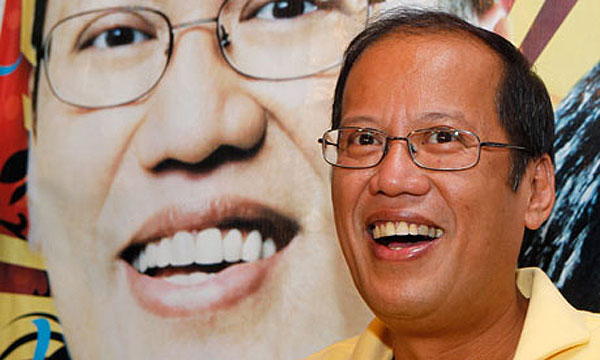
President Benigno “Noynoy” Aquino III of the Philippines is single but may be looking to change that, as reported by The Guardian:
“Given the burdens of this office, if there were someone you could confide in, someone you could talk to, someone who would tell you ‘You’re still doing OK’, then of course that would be a key to your inspiration,” Aquino told reporters. “I’ve been planning [marriage] for a long time, since college even. But I’ve just been unlucky.”
If the President is addled by his romantic woes, he may not be the only one.
Aquino may not be the only one stressed by his singlehood, say analysts. In a country that has long depended on the family to substitute for a centralised government, a bachelor president could be potentially disastrous for the dynasty at hand.
“The importance of family doesn’t just permeate Filipino politics but is a general feature of Filipino society,” says economist Pablo Querubin of the Harvard Academy for International and Area Studies, whose research has focused on political dynasties in the Philippines. “Historically, Filipinos have relied on the family for most things – from insurance to roadworks programmes – because there has rarely been any centralised authority, even going back to colonial times. The family is powerful in part precisely because the state is so weak … but it’s a vicious circle, because the strength of these families [also] undermines the creation of a centralised state.”
Politics in the Philippines have long been controlled by a small number of families, sometimes producing political feuds with deadly consequences. Could a Philippine First Family change the way families behave in the political arena, or would they merely add to the fray?







